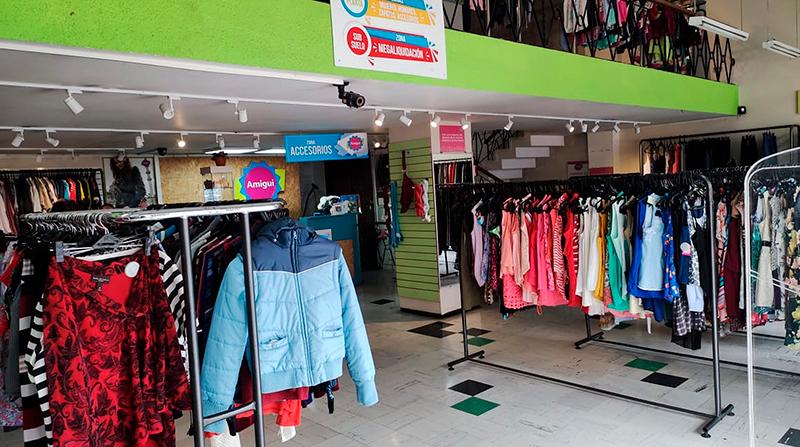
Camila Ayala used to buy clothes every two months. She did it like most people, in big box stores in malls.
Two years ago she joined the world of 'slow fashion', a trend that is committed to a more conscious and responsible consumption of garments and clothing accessories.
Now, in the wardrobe of this 22-year-old university student, the clothes she buys in 'fast fashion' boutiques share space with clothes purchased in local stores made by Ecuadorian designers. Ayala says that the inspiration for her activism began in social networks.
One of the sites she discovered is Lifestyle KIKI, a web portal created by Estefanía Cardona. This specialist in fashion marketing and communication explains that it is a lifestyle that recognizes the value of each garment based on a simple exercise: knowing who made it and how, under what conditions and what use the garment can give it. consumer.
This specialist ensures that the 'slow' lifestyle seeks for people to slow down the pace of overwhelming consumption of clothing.

According to 'A New Textiles Economy', a report by the Ellen MacArthur Foundation, between 2000 and 2015 the production of clothing doubled in the world. It went from 50 billion garments in 2000 to 100 billion 15 years later.
Cardona adds that this style is typical of the Ecuadorian. "We had it before 'fast fashion' arrived, because there are no big brands here." And within fashion, the most sustainable thing is to bet on what already exists. In this context, she says, the existence of second-hand stores is important.
Amigui is a company that has been operating since 2009. It now has eight stores in Quito where you can buy second-hand clothes. Its stores are located in Cotocollao, Solanda, Tumbaco, Historic Center, El Inca, the People's Committee and Cordero. It has four stores where this type of clothing can be sold: Quito Tenis, Eloy Alfaro, San Rafael and Cumbayá.
Gabriela Vásconez, one of the partners of Amigui, assures that the use of second-hand garments is a practical and simple alternative to get out of the logic of consumerism.
"Many people are convinced that clothes have only one life, when the reality is that if they are in good condition they can be used by more people." She maintains that second-hand clothing stores help people dress at more affordable prices.
In Amigui, a clothing stall for children can cost USD 10 and one for adults USD 20. "The idea with this project -says Vásconez- is that people do not get into debt by dressing their family."
In Cardona's opinion, it is necessary to break with the prejudice that links second-hand stores with bad taste or with the lower strata of society. "It's not about getting rid of the closet that one has, but being aware that what we don't use can be useful to someone else," she adds.
For María José Cordovez, it is a trend that is also related to caring for the environment. This jewelry designer says that she is always concerned about using materials that generate the least possible environmental impact. To make her pieces, she resorted to 'upcycling' (creative reuse), with cell phone and computer motherboards.
Camila Ayala, the responsible consumption of fashion encouraged her to launch Ponte Slow, a communication campaign, which is part of her graduation project, which seeks to raise awareness about the unbridled consumption of fashion.